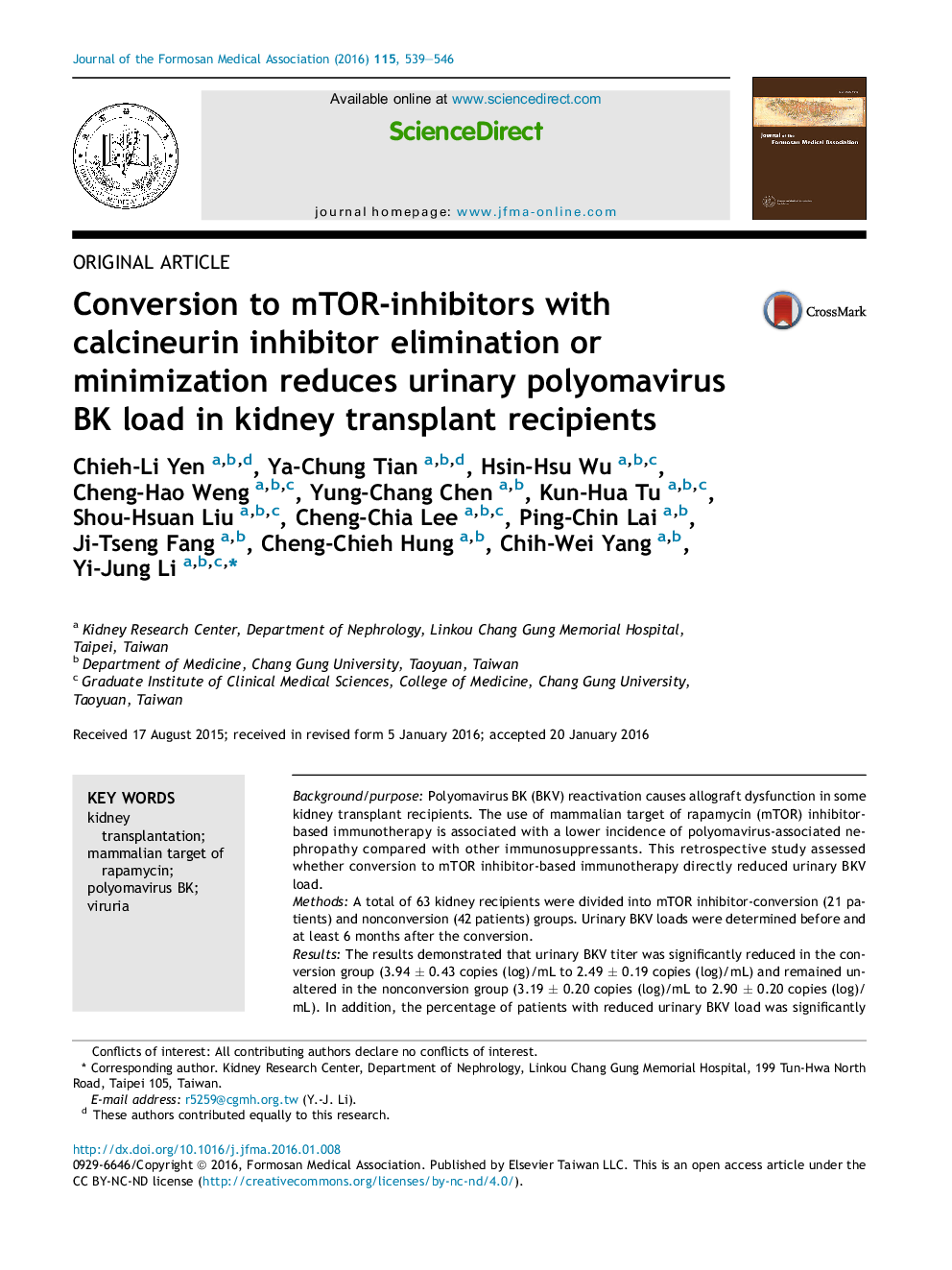| Article ID | Journal | Published Year | Pages | File Type |
|---|---|---|---|---|
| 3478327 | Journal of the Formosan Medical Association | 2016 | 8 Pages |
Background/purposePolyomavirus BK (BKV) reactivation causes allograft dysfunction in some kidney transplant recipients. The use of mammalian target of rapamycin (mTOR) inhibitor-based immunotherapy is associated with a lower incidence of polyomavirus-associated nephropathy compared with other immunosuppressants. This retrospective study assessed whether conversion to mTOR inhibitor-based immunotherapy directly reduced urinary BKV load.MethodsA total of 63 kidney recipients were divided into mTOR inhibitor-conversion (21 patients) and nonconversion (42 patients) groups. Urinary BKV loads were determined before and at least 6 months after the conversion.ResultsThe results demonstrated that urinary BKV titer was significantly reduced in the conversion group (3.94 ± 0.43 copies (log)/mL to 2.49 ± 0.19 copies (log)/mL) and remained unaltered in the nonconversion group (3.19 ± 0.20 copies (log)/mL to 2.90 ± 0.20 copies (log)/mL). In addition, the percentage of patients with reduced urinary BKV load was significantly higher in the conversion group (76.2% vs. 42.9%). The estimated glomerular filtration rate after 24 months mTOR inhibitor conversion was significantly increased compared with that in the nonconversion group. Conversion to mTOR-inhibitor-based immunotherapy was the only factor associated with an increase in estimated glomerular filtration rate.ConclusionThis study reveals an association of conversion to mTOR-inhibitor-based immunotherapy with the reduction of urinary BKV load.
